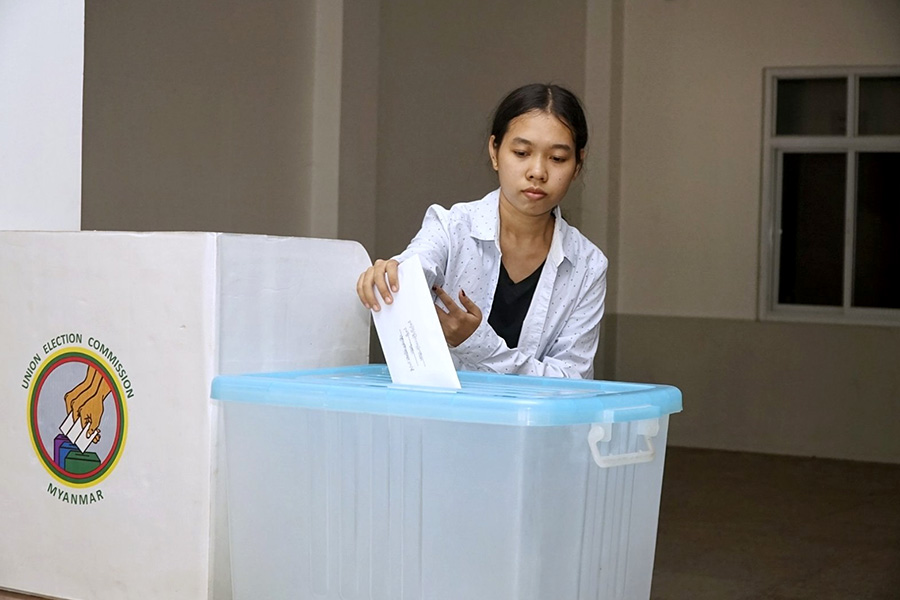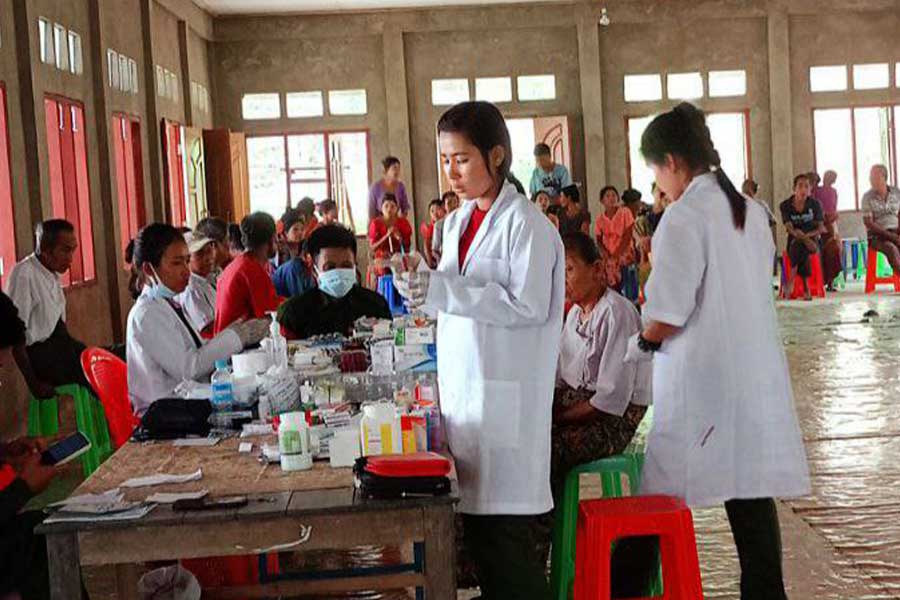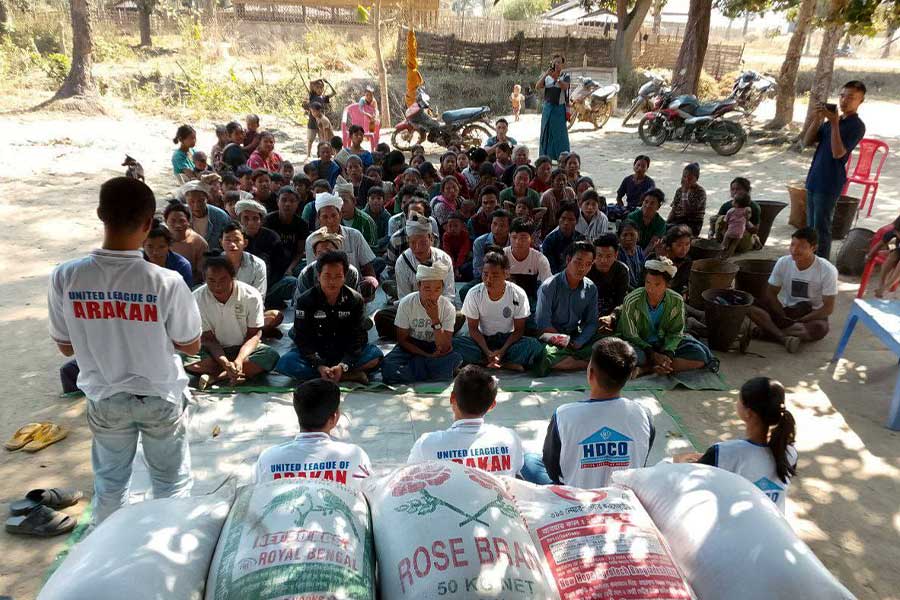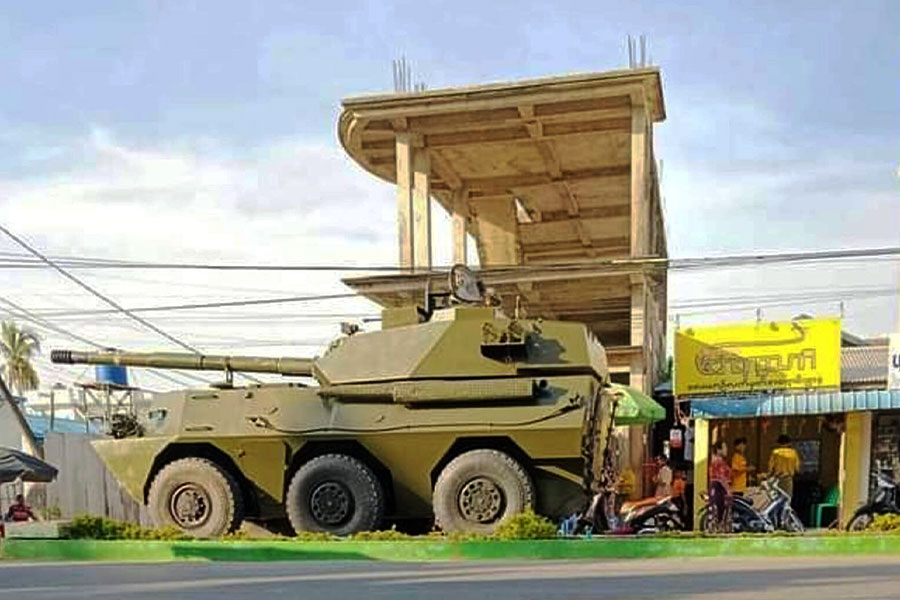- New Diplomatic Movements Between Bangladesh’s New Government and the Arakan Public Administration
- Junta claims over 24 million ballots cast in 2025 poll, cites strong youth turnout
- ULA expands HIV prevention, healthcare services for sex workers in AA-held areas
- Over 600 Mro villagers displaced in Maungdaw amid threats from ARSA, RSO
- Clashes continue in Sittwe as junta reinforces naval, armored deployment
Spokesman says Arakan Army attempting to end decade of Muslim-Arakanese tensions
Arakan Army (AA) spokesman U Khaing Thukha says efforts are being made to end a decade of tensions between Muslims and Arakanese in Arakan State, where the ethnic armed group is taking an increasingly influential role in everyday governance across much of the state.
11 Jul 2022
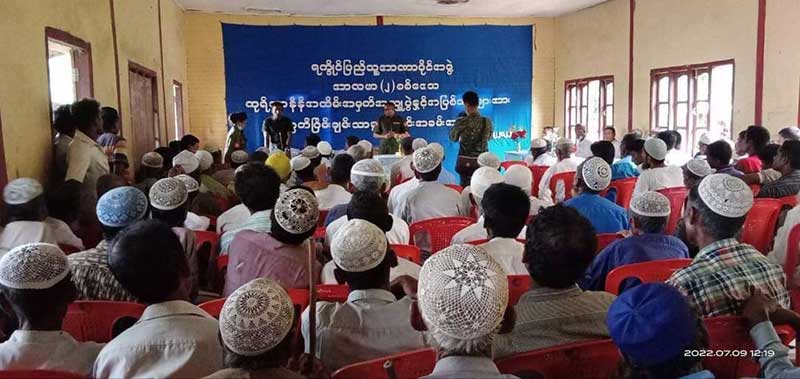
DMG Newsroom
11 July 2022, Sittwe
Arakan Army (AA) spokesman U Khaing Thukha says efforts are being made to end a decade of tensions between Muslims and Arakanese in Arakan State, where the ethnic armed group is taking an increasingly influential role in everyday governance across much of the state.
The Arakan Army on July 9 released eight Muslims arrested in Buthidaung Township in an effort to strengthen ties between the two communities, and provided clothing to about 450 impoverished people from 22 Muslim villages to mark Eid al-Adha, he said.
“The release of the eight Muslims, and the main reason for providing clothing to poor families, is to strengthen the friendship between Arakanese and Muslims during the Muslim holy month,” he added.
A Muslim student at Sittwe University, who spoke on condition of anonymity, said that since the United League of Arakan and Arakan Army (ULA/AA) were playing a key role in Arakan politics, it was appropriate to work for reconciliation between the two communities. He called for the release of all Muslims still detained.
“It is a good thing that the Arakan Army is releasing Muslim detainees and giving clothes to poor families. I want to demand the release of Muslims who have been wrongfully arrested. I would like to demand the release of those who have been wrongfully arrested and to inform the families of those arrested,” the student added.
The military and the Arakan Army have largely observed an unofficial ceasefire since November 2020. But a handful of clashes have taken place between the two sides so far this year.
The ULA, which is the political wing of the AA, has been working to establish a parallel administration in Arakan State, including a judiciary, revenue department, security apparatus and other governing institutions operating independent of the central Myanmar government.
The ULA/AA, according to U Khaing Thukha, has been working to promote harmony between Arakanese and Muslims, such as providing medical treatment in Muslim villages, meeting with Muslim religious leaders and elders, and holding friendly football matches.
U Aung Thaung Shwe, a former Lower House lawmaker, said the people were cooperating with the ULA/AA in working for reconciliation between the two communities.
“The ULA/AA’s approach is to implement human rights and harmony with the international approach, not just in words but in practice,” he said. “The AA’s implementation has been as successful as it could have been.”
The ex-MP noted the formidable challenges to any reconciliation agenda in Arakan State, which was wracked by violence between Arakanese Buddhists and Muslims in 2012, and has seen additional inter-religious strife in the years since.
“There may be obstacles; [for example,] people who do not like the strong public participation in the implementation of harmony between the two communities. In any case, I think the Arakan Army will succeed with a lot of people’s cooperation, because this is a good thing,” U Aung Thaung Shwe added.
At a press conference held by the Arakanese ethnic armed group on April 5, AA spokesman U Khaing Thukha said the military regime’s governing body, the State Administration Council (SAC), has formally complained about the AA’s engagement with Muslim communities in Arakan State.
Relations between Arakanese and Muslims have been strained since the 2012 conflict, which was followed by Myanmar military operations in 2016 and 2017 that forced more than 700,000 Muslims to flee Arakan State into neighbouring Bangladesh.
The United Nations’ human rights chief at the time described the military’s actions as a “textbook example of ethnic cleansing,” while others in the international community have called it genocide, including Bangladesh’s former foreign minister and the US secretary of state.
In more recent years, members of both communities have described gradually improving relations, including interfaith events that had not taken place in a decade.




